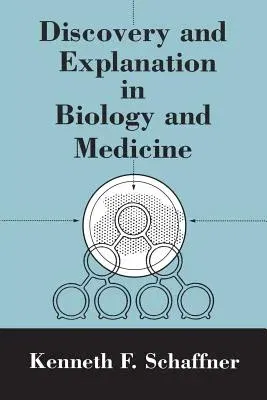Kenneth F. Schaffner compares the practice of biological and medical
research and shows how traditional topics in philosophy of science--
such as the nature of theories and of explanation--can illuminate the
life sciences. While Schaffner pays some attention to the conceptual
questions of evolutionary biology, his chief focus is on the examples
that immunology, human genetics, neuroscience, and internal medicine
provide for examinations of the way scientists develop, examine, test,
and apply theories. Although traditional philosophy of science has
regarded scientific discovery--the questions of creativity in
science--as a subject for psychological rather than philosophical study,
Schaffner argues that recent work in cognitive science and artificial
intelligence enables researchers to rationally analyze the nature of
discovery. As a philosopher of science who holds an M.D., he has
examined biomedical work from the inside and uses detailed examples from
the entire range of the life sciences to support the semantic approach
to scientific theories, addressing whether there are "laws" in the life
sciences as there are in the physical sciences. Schaffner's novel use of
philosophical tools to deal with scientific research in all of its
complexity provides a distinctive angle on basic questions of scientific
evaluation and explanation. Kenneth F. Schaffner is University Professor
of Medical Humanities at the George Washington University, and
University Professor of History and Philosophy of Science and Research
Professor of Medicine at the University of Pittsburgh. He received his
Ph.D. in philosophy from Columbia University and his M.D. from the
University of Pittsburgh. His previous booksinclude "Nineteenth-century
Aether Theories" and "Logic of Discovery and Diagnosis in Medicine."

